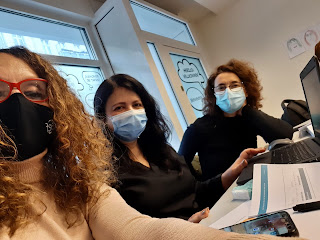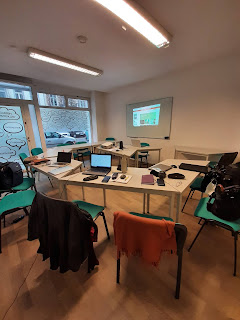6th day - 11th December, 2021
Tour in Potsdam
Potsdam is the capital of the German state of Brandenburg.
It directly borders the German capital, Berlin, and is part of the Berlin/Brandenburg Metropolitan Region. Potsdam was a residence of the Prussian kings and the German Kaiser until 1918. The city is over 1000 years old and is known for its palaces, lakes, and it overall historical and cultural significance. Worth mentioning: the parks and palaces of Sanssouci, (Germany's largest World Heritage Site),as well as other palaces, such as: the Orangery Palace, the New Palace the Cecilienhof Palace, or the Charlottenhof Palace.
Frederick II (1712-1786) was Prussia’s king from 1772 until his death. He was the last Hohenzollern monarch titled King in Prussia and declared himself King of Prussia after annexing Polish Prussia from the Polish–Lithuanian Commonwealth in 1772.
His most significant accomplishments include his military successes in
the Silesian wars, his re-organisation of the Prussian Army, the First
Partition of Poland, and his patronage of
the arts and the Enlightenment.
Prussia greatly increased its territories and became a major military power
in Europe under his rule. He became known as Frederick, the Great. Frederick was a supporter of enlightened
absolutism, stating that the ruler
should be the first servant of the state.
"Whoever improves the soil, cultivates land lying waste and drains swamps,is making conquests from barbarism". Frederick II
Frederick was keenly interested in land use, especially draining swamps and opening new farmland for colonists who would increase the kingdom's food supply. Frederick understood this project as the "taming" and "conquering" of nature, considering uncultivated land "useless", an attitude that reflected the enlightenment era way of thinking. He presided over the construction of canals for bringing crops to market, and introduced new crops, especially the potato and the turnip, to the country. For this, he was sometimes called Der Kartoffelkönig (the Potato King).
Frederick’s grave (with potatoes)

































